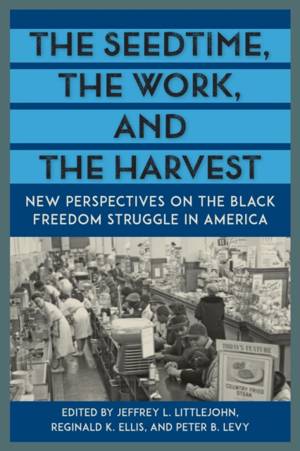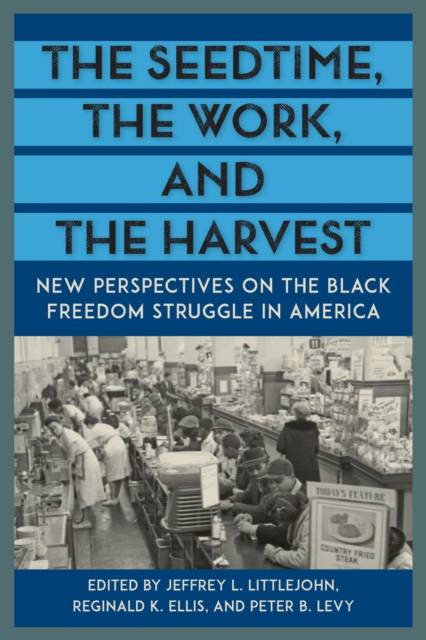
- Retrait gratuit dans votre magasin Club
- 7.000.000 titres dans notre catalogue
- Payer en toute sécurité
- Toujours un magasin près de chez vous
- Retrait gratuit dans votre magasin Club
- 7.000.000 titres dans notre catalogue
- Payer en toute sécurité
- Toujours un magasin près de chez vous
The Seedtime, the Work, and the Harvest
New Perspectives on the Black Freedom Struggle in America
38,45 €
+ 76 points
Description
This volume's contributors expand the chronology and geography of the black freedom struggle beyond the traditional emphasis on the Jim Crow South and the years between 1954 and 1968. Beginning as far back as the nineteenth century, and analyzing case studies from southern, northern, and border states, the essays in The Seedtime, the Work, and the Harvest incorporate communities and topics not usually linked to the African American civil rights movement. The collection opens with a biographical sketch of Thomas DeSaille Tucker, an educational pioneer who served as the first president of Florida State Normal and Industrial School for Colored Students. It then highlights the work of black women, including Bostonian publisher Josephine St. Pierre Ruffin, who defied local governments during the Progressive Era by disseminating medical information and providing access to medical professionals. Next, the collection explores the life and work of Norfolk civil rights attorney James F. Gay, who helped to democratize the political establishment in Virginia's largest city but became a victim of his own success. The collection then moves to York, Pennsylvania, to examine a 1969 riot that went mostly unnoticed until the town's mayor was charged--more than thirty years later--with the riot-related murder of Lillie Belle Allen. Also featured is an essay examining the Student Nonviolent Coordinating Committee's "Food for Freedom" campaign that aimed to complement voter registration work in Mississippi by providing everyday sustenance to African Americans. Addressing more recent issues, this volume considers the politics of public memory in Baltimore, Maryland, a city divided by racial "riots" in 1968 and in 2015. It then examines the Black Lives Matter movement that gained international attention for its response to Michael Brown's death at the hands of police in Ferguson, Missouri, as well as the Sandra Bland Movement inspired by the arrest of Bland and her subsequent death in the Waller County jail in rural Texas. These chapters connect the activism of today--shaped in so many ways by social media, student activism, and grassroots organization--to a deeply historical, wide-ranging fight for equality. A volume in the series Southern Dissent, edited by Stanley Harrold and Randall M. Miller
Spécifications
Parties prenantes
- Editeur:
Contenu
- Nombre de pages :
- 262
- Langue:
- Anglais
- Collection :
Caractéristiques
- EAN:
- 9780813064383
- Date de parution :
- 12-11-19
- Format:
- Livre broché
- Format numérique:
- Trade paperback (VS)
- Dimensions :
- 152 mm x 229 mm
- Poids :
- 390 g






